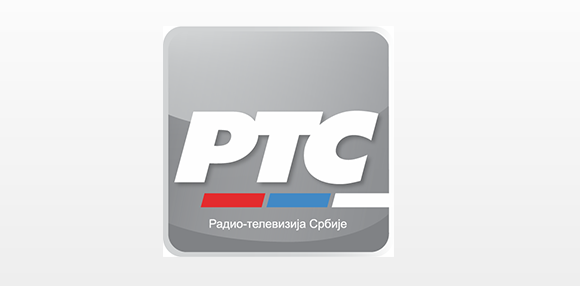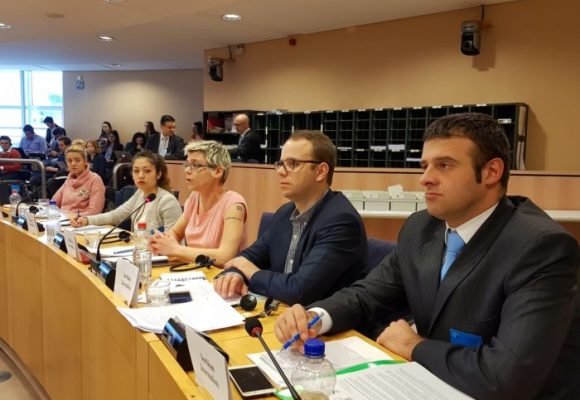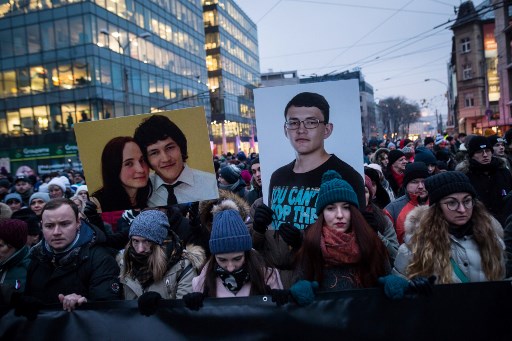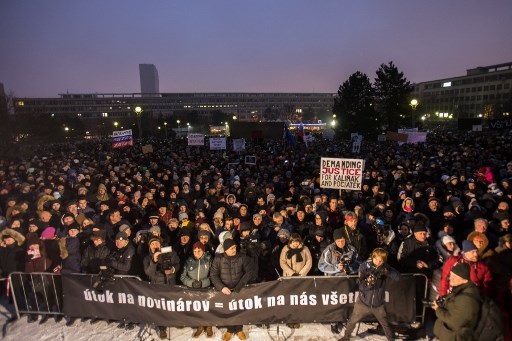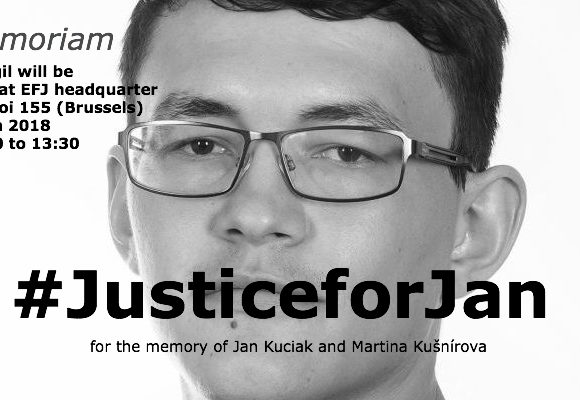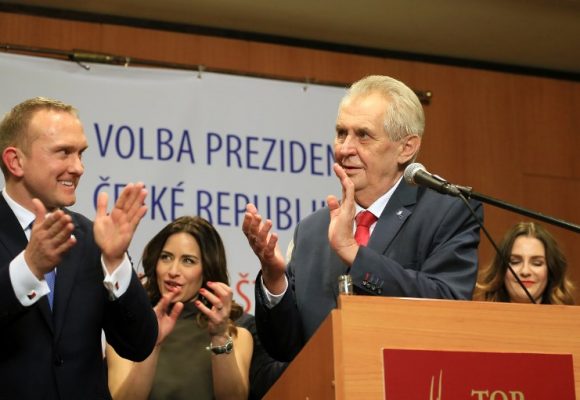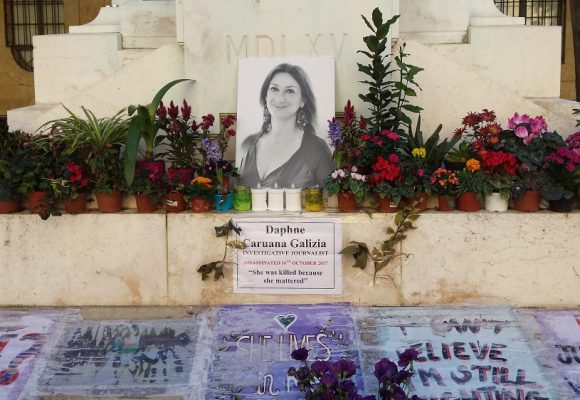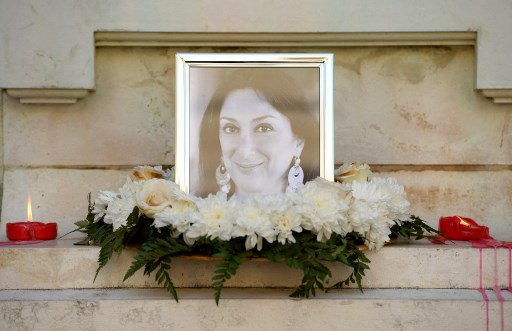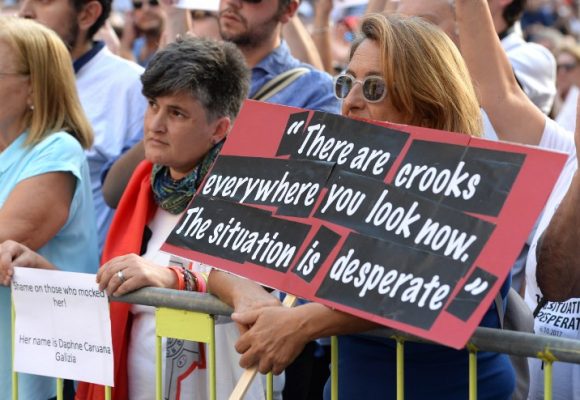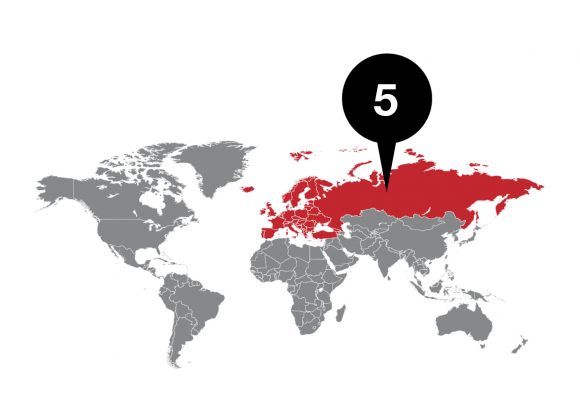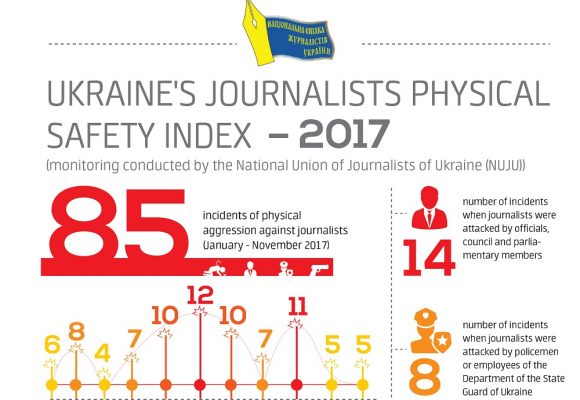#safety
CoE Platform: partners’ meeting
Harassment of journalists and how to tackle it – Sharing best practices
Harassment of journalists and how to tackle it – Sharing best practices Time: 7.5.2018 at 14:00–17:00 Venue: Permanent Representation of Finland to the EU Avenue de Cortenbergh 80 B-1000 BRUXELLES BELGIUM In a networked and polarized world, journalists are more and more often at the receiving end of harassment. To share ideas, experiences and best practices in tackling the phenomenon, the Association of Finnish Foreign Affairs Journalists organises an international seminar in Brussels in May 2018. Its goal is to have interesting, informal conversations on the topic between people of different backgrounds so that all participants leave with better tools…
Serbian journalists attacked by police in Kosovo
The European Federation of Journalists (EFJ) joined its Serbian affiliate, the Journalists’ Union of Serbia (SINOS), the Journalists’ Association of Serbia (UNS) and the Independent Journalists’ Association of Serbia (NUNS) in condemning the attacks on Serbian cameraman Vladimir Milic as well as journalists Dragana Zecevic and Radmila Komazec on 26 March 2018 in Kosovska Mitrovica, Kosovo. They were covering a meeting of the local community about the Kosovo dialogue in the Mitrovica Community Centre. The level of violence was very high as shown in this reportage. Milic, who works for the public television Radio Television of Serbia (RTS), was reportedly attacked by Kosovar policemen who…
Western Balkans: media freedoms and safety of journalists still at risk
A delegation of the Western Balkans’ Regional Platform project for advocating media freedom and journalists’ safety visited Brussels on March 21st and 22nd and held meetings and consultations with the members of the European Parliament and representatives of the European Commission from the Directorate General for Neighbourhood and Enlargement negotiations (DG NEAR). Representatives of journalists’ associations and a trade union from Bosnia and Herzegovina, Macedonia, Montenegro and Serbia presented the journalists’ safety and the media situation in their countries. They emphasised joint problems their members and other journalists face, including poor working conditions, fear for personal safety due to work,…
EFJ urges EU Parliament to protect right of access to information after Kuciak’s murder
The European Federation of Journalists (EFJ) joined 61 civil society organisations on 13 March 2018 in a letter to the European Parliament calling for stronger safeguards for journalists and citizens who exercise their right of access to information in the wake of murdered Slovakian journalist Ján Kuciak. The statement was sent to all 751 Members of the European Parliament in preparation of a plenary debate on “Protection of investigative journalists in Europe: the case of Slovak journalist Ján Kuciak and Martina Kušnírová” in Strasbourg on 14 March 2018. The letter underlines the importance of the right to access to information in fighting…
IFJ and EFJ join media coalition urging EU to protect journalists
The International and European Federations of Journalists (IFJ and EFJ) today joined a global call for the EU to take action to protect journalists and end impunity within Europe. The IFJ and EFJ cosigned a letter with 15 media freedom organisations addressed to the President of the European Commission, Jean-Claude Juncker, calling for EU action to protect journalists in Europe following the recent killings of Slovak and Maltese reporters Jan Kuciak and Daphne Caruana Galizia. The killings of the journalists, who had reported on corruption, organised crime and the abuse of power in their respective countries, are “unacceptable”, says the…
Slovak investigative journalist Jan Kuciak and partner shot dead
In order to honor their memory, a silent vigil will be organized by Jan Kuciak and Martina Kušnírova’s friends and colleagues outside the International Press Center at Residence Palace, rue de la Loi 155 (Brussels) on Thursday (1st of March 2018) from 12:30 to 13:30. The European and International Federation of Journalists (EFJ/IFJ) are deeply shocked to learn of Jan Kuciak‘s death, a 27-year-old Slovakian reporter working for “Aktuality.sk” news portal. His body was found on 25 February alongside his partner Martina Kusnirova at their home in Velka Maca, some 65 kilometres from the capital Bratislava. Slovakian police launched a murder probe on Monday 26 February 2018. Kuciak’s reporting focused…
Czech reporters physically harassed by Presidential supporters
The European Federation of Journalists joined its affiliate in Czech Republic, the Syndikat novinaru Ceske republiky, in condemning the violence against journalists that occurred on 27 January 2018 in Prague, during the re-election of the President Milos Zeman. Last Saturday, supporters of Milos Zeman physically harassed journalists at the president’s election headquarters, where journalists were reporting on the President’s re-election. As captured in this video footage, reporters were pushed, punched and one camera’s reporter was threw to the ground in order to prevent him filming. The OSCE Representative on Freedom of the Media, Harlem Désir, condemned the violence against reporters and urged a…
Meeting with Maltese Ambassador Marlene Bonnici
Together with CPJ and RSF representatives, Ricardo Gutiérrez (EFJ) and Ernest Sagaga (IFJ) will meet Ambassador Marlene Bonnici about the investigation on the masterminds of Daphne Caruana Galizia’s assassination in Malta.
Daphne Caruana Galizia’s assassination: Demand for Close International Scrutiny
The European Federation of Journalists (EFJ) is pleased to be an official partner of the discussion “Assassination of Daphne Caruana Galizia – Demand for Close International Scrutiny”, held today in Strasbourg as a side event to the Parliamentary Assembly of the Council of Europe (PACE). Three months to the day after Daphne Caruana Galizia’s assassination, MPs Anne Brasseur (ALDE, Luxembourg), Pieter Omtzigt (EPP, Netherlands) and Frank Schwabe (SOC, Germany) announce an event to be held in her honour on the margins of the winter session of the Parliamentary Assembly of the Council of Europe today in Strasbourg. The cross-party group of MPs will host Daphne Caruana Galizia’s…
EFJ and Partner Organisations Urge Close International Scrutiny over Daphne Caruana Galizia’s Murder
The undersigned organisations, partners of the Council of Europe Platform for the Promotion of Journalism and the Protection of Journalists, are deeply concerned over the lack of progress in the investigation into the murder of Maltese journalist Daphne Caruana Galizia. The authorities have announced the arrests of three suspects in connection with her murder, but there remains a widespread belief that those who ordered this crime have not yet been identified. Daphne Caruana Galizia was murdered in a car bomb explosion on October 16, a few meters away from her home. Her death raised concerns not only about protection of…
European delegation investigates rule of law in Malta
A European delegation of representatives from the various political parties of the European Parliament has released on Thursday the report from its mission to Malta, on 30 November and 1 December 2017. The delegation met Maltese journalists, the police commissioner and the attorney general of Malta, to discuss important issues affecting the rule of law in the country – including the state of the media. Maltese journalists from the Times of Malta, the Malta Independent and The Shift News were greeted by the delegation. The journalists highlighted legal challenges facing journalists, including libel cases, which are easy for the accusers but…
5 media professionals killed in Europe in 2017
80 journalists have been killed worldwide this year, including 5 in Europe, according to the International Federation of Journalists’ (IFJ) Killed List, published today. The list details the journalists and media staff killed in targeted killings, car bomb attacks and cross fire incidents around the world during 2017. Denmark: Kim Wall The Swedish freelance journalist Kim Wall was killed in Denmark in August this year. The journalist had boarded a civilian submarine with its inventor, Peter Madsen, and was researching for a feature about him and the vessel which he had built from crowdfunding. Kim Wall’s body parts were later found…
Republic of Macedonia: High time to protect Media Freedom
Report on the April 2017 Joint International Mission In a joint mission, the European Centre for Press and Media Freedom (ECPMF), the European Federation of Journalists (EFJ), the South East Europe Media Organisation (SEEMO), and the Osservatorio Balcani e Caucaso Transeuropa (OBCT) observed the situation of journalists and media workers in the Republic of Macedonia. The on-site research in Macedonia in April 2017 was motivated by the deterioration of the safety of journalists through the increasing number in verbal and physical attacks. This report indicates that through complex set of mechanism the previous government, as well as authorities, gave their…
Who are the masterminds behind Daphne Caruana Galizia’s murder?
The European Federation of Journalists (EFJ), together with the Italian NGO Ossigeno per l’Informazione, called on the Maltese authorities, on Wednesday, to identify and prosecute the masterminds behind journalist Daphne Caruana Galizia‘s murder. The reporter was killed on 16 October 2017 by a powerful car bomb in Bidnija town, near her family home. Following the arrest of at least 10 suspects on Monday 4 December, brothers George and Alfred Degiorgio, together with Vincent Muscat, were finally charged with the criminal use of explosives, being involved in organised crime, and criminal conspiracy during a hearing which took place on 5 December. The charged…
Increasing violence against journalists in Ukraine
The National Union of Journalists of Ukraine (NUJU) just released the outcomes of its “Ukraine’s Journalists Physical Safety Index”. The situation remains worrying in the country: from January to November, NUJU registered 85 physical attacks against journalists. In 14 cases (16%), journalists were attacked by public officials, including members of the Parliament. In 8 cases, journalists were attacked by policemen or members of the State Guard. The president of NUJU, Sergiy Tomilenko, raised the issue of increasing violence during a seminar organised by the The Office of the United Nations High Commissioner for Human Rights (OHCHR) in Odessa, on 29 November. Tomilenko…

